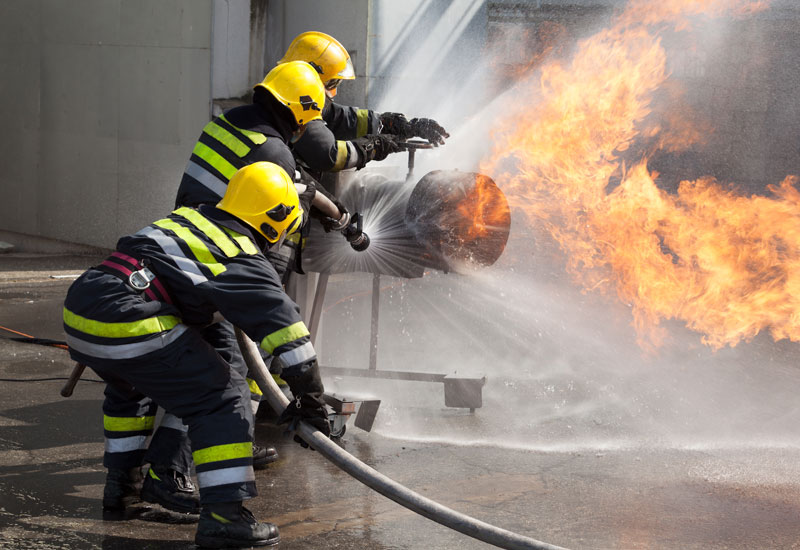On December 31 2015, Dubai had hoped to captivate the world with fireworks, set to go off at midnight in celebration of the New Year. Instead, the eyes of the world were fixed on fire licking up the side of nearby hotel, The Address Downtown Dubai, a mere two-and-a-half hours before the scheduled festivities.
The fire at The Address Downtown Dubai is, of course, not an isolated incident within the region. The news has been regularly peppered with reports of fire at hotels across the Gulf. High profile cases reported on HotelierMiddleEast.com include the pre-opening fire at Atlantis the Palm in 2008, the fire at Kempinski Mall of the Emirates in June 2014, and incidents at both the Hilton Hotel Makkah and City Seasons Al Ain in July 2015.
Given the number of GCC hotel fires in the last two years alone, the question “are hotels in the region fire safe?” is inevitable now.

| Advertisement |
Given the results of two informal polls run by HotelierMiddleEast.com last month, the response to this question from our readers appears largely to be “no”. But not a simple “no”.
Two key areas of concern were highlighted in response to our polls: construction of hotels in the Gulf, and staff training at hotels in the Gulf. While Emaar has only given a relatively cagey response to the media regarding the initial cause of fire, and the spread of fire, Dubai’s police chief Khamis Mattar Al-Mazeina had said in local media that the The Address Downtown Hotel fire was caused by an electrical short, and also revealed that that no flammable liquids such as petrol played a role.
Prevention then, became the main topic of discussion, and two further issues have become hot topics among hoteliers: maintenance of fire prevention systems, and guest behaviour within hotels.
According to our readers, the majority opinion is that fire-safe construction is the biggest issue facing hotels in the region.
However, other reports suggest that the speed at which the fire spread up the exterior of the hotel indicates the cladding of the building was not fire-safe.
Regulations passed in 2012 in the UAE state that properties must be built with fire-safe external cladding. Of course, properties built prior to 2012, of which The Address is just one, may not have met this new regulation. A solution available to older hotels is to install fire-retardant panels at intervals across the building’s exterior. Whether the cost of this will be viewed as an investment by older hotels remains to be seen.
Article continues on next page...









 Search our database of more than 2,700 industry companies
Search our database of more than 2,700 industry companies









